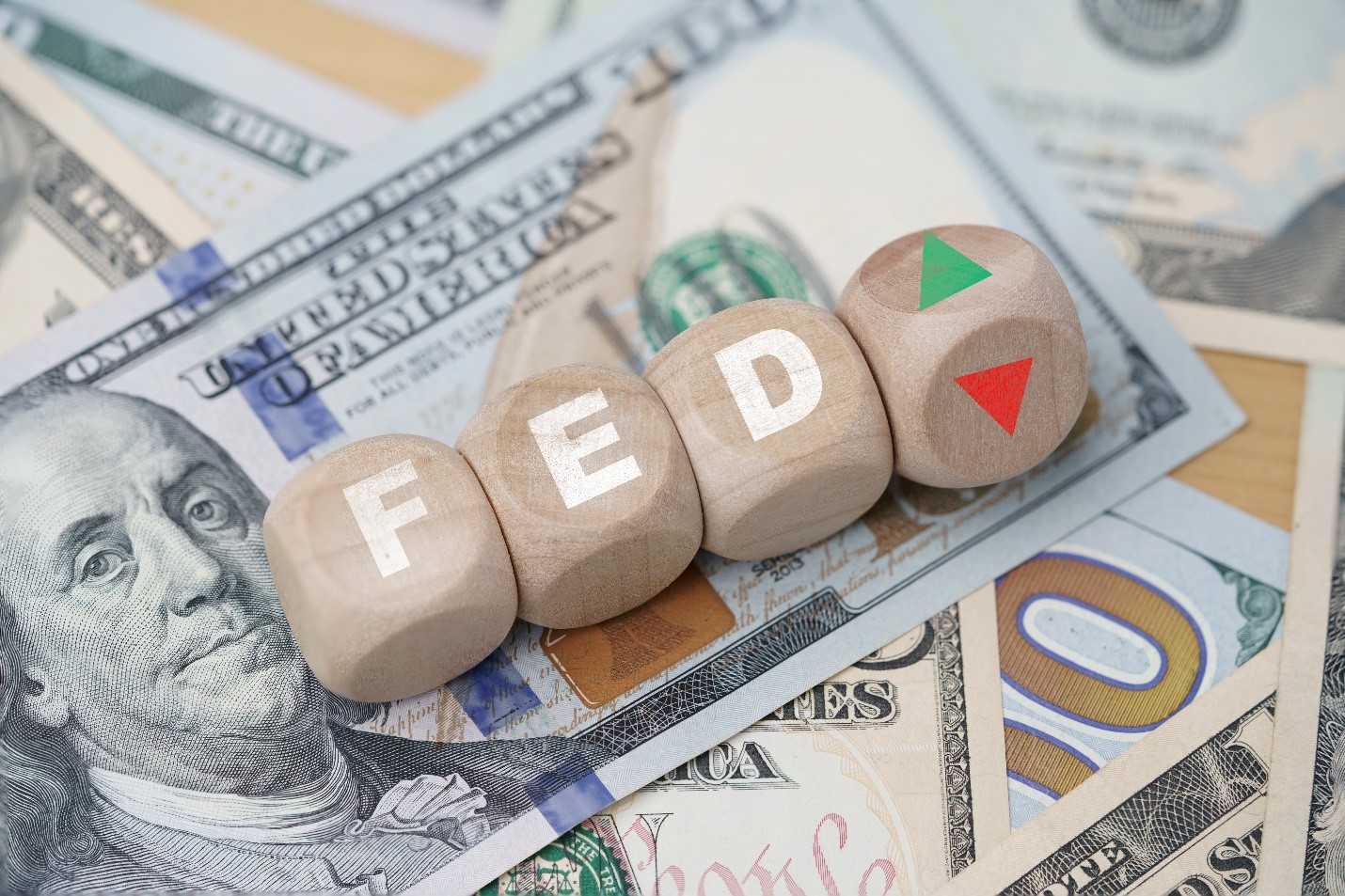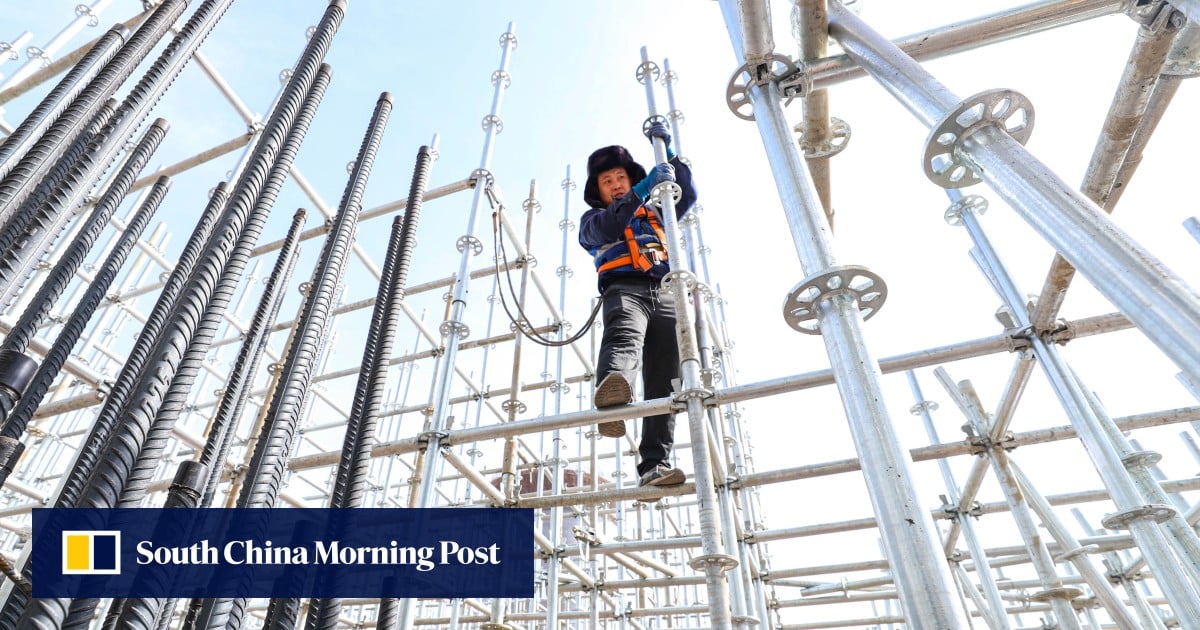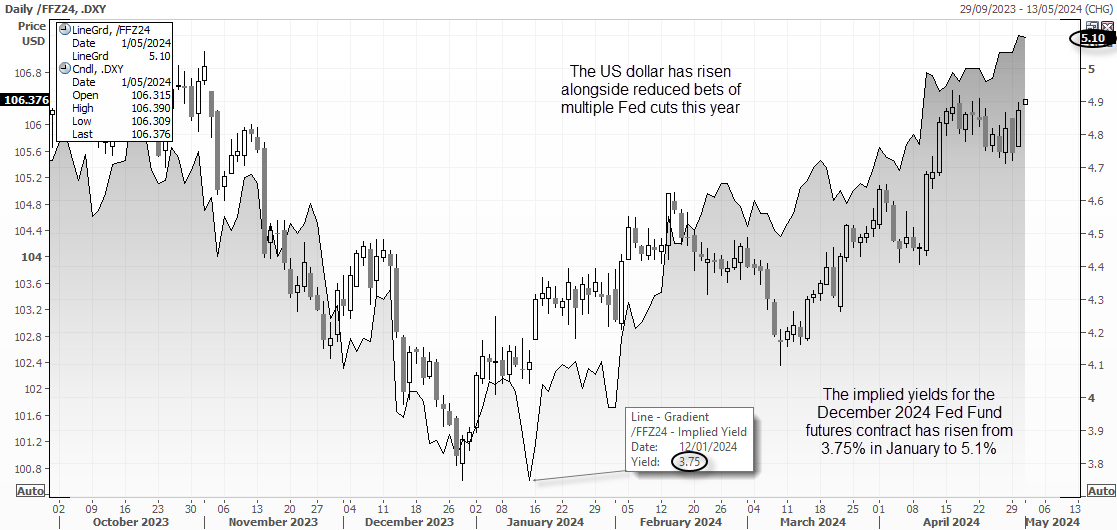Colin’s note: Don’t expect the Fed to cut interest rates anytime soon…
Chairman Jay Powell cited stubborn and unstable inflation as the reason for keeping rates high. Until it has “greater confidence” in progress toward its 2% target, the Fed is not moving on rates.
That’s despite all the red flags the economy has been throwing up…warning signs that would once have had the Federal Reserve taking a more accommodative stance.
So what’s going on?
Let’s get into it. It’s all in today’s video. Just click below to watch. And, as always, you can contact me and my team at [email protected].
Bleeding Edge subscribers, happy friday.
If there was any hope left that the Federal Reserve would cut interest rates this year, those hopes were dashed this week.
On Wednesday, Fed Chairman Jerome Powell, as he often does, successfully straddled the line between being too hawkish and too dovish.
This despite the fact that parts of the economy are deteriorating in plain sight. Job cuts in the first half of 2024 hit their highest level since 2009. That’s right, 2009. For those of you who don’t remember, early 2009 was the peak of the financial crisis scare.
Today we got news that the economy added far fewer jobs than expected. Nonfarm payrolls increased by 175,000. The expectation was 243,000. Meanwhile, the unemployment rate rose to 3.9%.
But it’s not just the job market that’s showing warning signs these days. Starbucks, the global coffee chain, cut its forecast for revenue growth from 7% to 10% to roughly flat for the rest of the year. The coffee giant said consumers have tightened their wallets here in the United States. Starbucks shares fell to a new two-year low on that news.
But the pullback in consumer spending isn’t just isolated to the $5 coffee crowd. McDonald’s also reported earnings this week, saying, “Consumers continue to be even more discriminating with every dollar they spend.” The fast-food giant said traffic in the United States was flat to declining in the first quarter.
In the past, this would have been enough for the Federal Reserve to move from a tight monetary policy to a much more accommodative one…but not this time.
Yes, the inflation rate is still slightly above the Federal Reserve’s arbitrary 2% target. But the Fed’s mandate is not just to control inflation. It is also for full employment. And despite all the troubling data we’re seeing from the labor market, the Federal Reserve isn’t going to budge.
And that’s because the stock market continues to grow in power.
Apple reported earnings yesterday and it mirrored exactly what we’re seeing at Starbucks and McDonald’s. Apple’s device sales over the past year are down 9.5%. It’s one of the biggest drops we’ve ever seen in Apple, so you’d expect the stock to drop.
But, in reality, it was quite the opposite.
Apple shares soared on a plan to spend $110 billion to buy back shares over the next two years. That was enough to send Apple shares up more than 6%. And since Apple is one of the largest holdings among most index funds…it was enough to send the entire market higher.
So what does this all mean?
First, we have seen a complete separation of the real economy from the stock market.
Consumers are moving away from eating Starbucks and McDonald’s.
While the iPhone’s price is largely subsidized by payment plans and trade deals, consumers aren’t buying the company’s latest products at the same rate as before. That’s because when you look at the job market, it’s getting harder and harder for people to find and keep a job.
And all of this falls under the weight of the fact that prices for almost everything remain high and have largely canceled out any wage gains we’ve seen in the last couple of years.
But don’t expect the Federal Reserve to come to the rescue anytime soon.
The stock market is the economy they pay the most attention to. If the stock market was bottoming out like it was in 2009, the Federal Reserve would be like a flock of doves raining down money and lowering interest rates. But that’s not going to happen this time.
The economy the Fed is paying attention to can mask all its problems and weaknesses with a $110 billion stock buyback.
Ultimately, the Fed will be slow to react once again.
Remember when inflation was clearly out of control towards the end of the pandemic. they called these price increases “transitional”. Only months later did they finally act, long after the stock market had fallen from its all-time highs.
The same will happen this time. Despite all the evidence of a weakening economy, the Fed will be slow to act because companies like Apple can financially project a positive stock price despite poor sales and demand.
As an investor, I would remain fully invested because there is no way to judge how long Wall Street can keep rearranging the deckchairs. But at some point, this ship is going to sink. Then, and only then, will it be the Federal Reserve Act. And for many in the real economy, it will be too late.
That was it The Bleeding Edge for today Have a nice weekend. See you again next week.
#headed #stock #market #crash #Brownstone #Research






